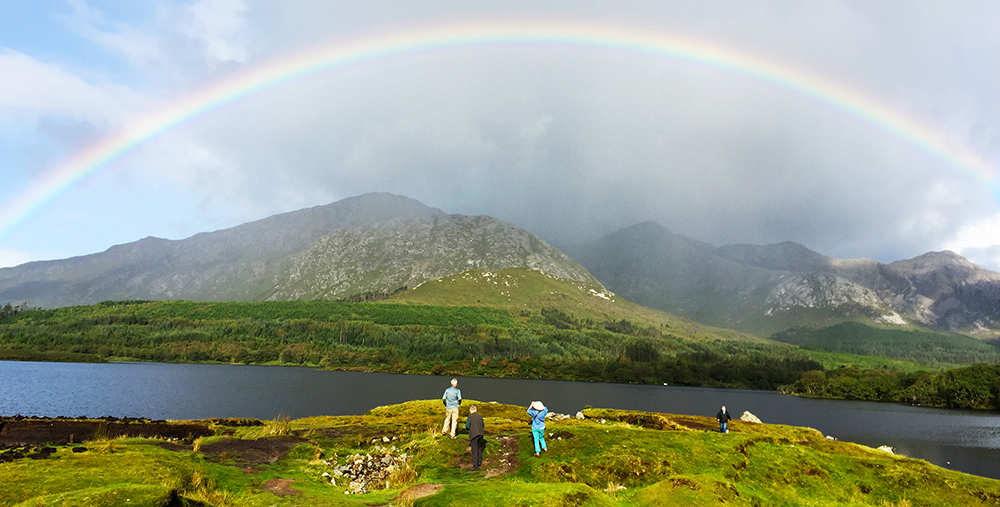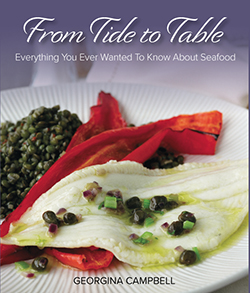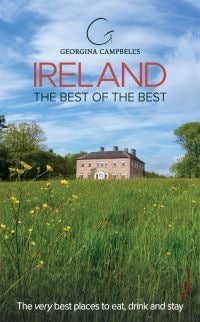Post-Covid World - The New Tourism
Pivoting has been one of the most-used words throughout the pandemic - and with good reason, as those able to see opportunities and move quickly to change direction are staying the course. But it’s not a new concept, as lifelong hospitality professional Joe Hughes explains. Here he shares his experience of pivoting from high-end hotel management to an entirely different tourism sector - and makes some predictions about future opportunities.

With the tourism and hospitality industry in disarray, many people are already wondering what the post-Covid visitor experience will be - and what getting back to work is really going to be like. Things will be different. Competition for jobs will be high. However, it’s not all negative. When the industry begins to stretch its wings again there will be opportunities that could not have been foreseen a year ago, because the recent changes will bring about a new perspective – if we are open minded to embrace it.
All my life I have been an hotelier but some years back a family crisis put me at a crossroads, and I took a break to care for a family member. A few months turned into five years. Trying to get back into hotel management afterwards proved impossible and, believing that I only knew about managing hotels, I could see no future for myself. But fate intervened in the form of an invitation to take up some very different temporary work in tourism, which eventually became permanent and - to my great surprise - very rewarding. It introduced me to prospective incoming tour group and cruise ship operators and, while a hotel management background was a sound foundation, it demanded new skills.
So, I had to re-learn a huge amount and to brush up my knowledge on everything that you can (and much that you probably can’t) imagine, to interest and engage with visitors who may not be in the young adventure holiday category, but don't want to just sit on a tour bus and sleep. Instead they want to get involved with activities such as spending a morning with a farmer on the Burren; watching a home based handweaver in Donegal; learning about Hurling and playing it; spending time with a sheep farmer in Connemara and so on.
Let me share with you what I learned over the course of the years following my change of direction.

The most important thing that I learned is, obvious as it may seem, that tourists do not come to Ireland for the weather, nor do they come to sit in the sunshine on our beautiful empty beaches. If asked why people come to Ireland, could you answer? And let me say here it has nothing to do with the country being so green, for it often comes as a shock to us Irish to realise that there are many other green countries in the world. The answer of course, as born out by countless Tourism Ireland surveys, is that they come here to meet the people.
Yet, strangely, we often do the best we can to keep them away from the people. Not our wonderful waiters and waitresses, or our warm and friendly receptionists, of course, but the people in the street.
Possibly my biggest surprise came when an operator asked me if I could arrange for some of her travellers to spend a morning at a Hospice? And the second request was a morning or an afternoon working with young offenders. Tourism has changed and not because of Covid 19; it had already changed, but the pandemic is accelerating the process. Most of the incoming visitors that I work with take more than one vacation each year and yes, one of those is probably spent frying on a golden beach listening to the gently lapping waters. But on the other vacation or vacations they are looking for the extraordinary. This is where opportunity opens its door to us, as long as we keep in mind that the objective is authenticity - they want the real thing; and the second objective is to give them time to chat with the locals.
Many people are already providing home hosted meals for touring visitors. The group is broken up into smaller groups of between six and eight people. Each small group will visit a home (dropped off by the tour guide) where they will have lunch or dinner with some of the family members – most particularly they want to meet the woman of the house. Food is simple, a light starter, a main course such as Cottage Pie or Bacon and Cabbage and a light dessert with tea or coffee. Dinner is often a bit more elaborate and could include Roast Chicken. A glass of wine or a beer is presented. But the food, while authentically homely and enjoyable, is not the star of the event - that is the opportunity to meet the locals in their own home and talk about everyday topics. It is not too daunting as most of the food is prepared in advance and each group stays no longer than two hours before they are picked up by the tour guide.

But supposing having people at home for a meal is actually too daunting, what about an evening playing cards? The full group is broken up into smaller groups who each then go to a different home for two hours of cards. A cup of tea or coffee, some sandwiches and a slice of apple cake. A traditional Irish evening from days gone by!
Already incoming visitors are visiting small farm holdings, particularly retired farmers and they generally talk ‘farm talk’ with ‘himself’ and the woman of the house demonstrates how to bake scones or soda bread which the group then eat with a cup of tea. In two hours the group is gone.
How about story telling? Or, better still, storytelling and a bowl of Irish Stew?
Do the children play traditional instruments? Or do they do Irish dancing? Perhaps there is a vacant church hall? What about a Ceili for touring visitors?
Or a GAA Club could host a group of visitors, in the morning when the Club is empty, and talk about the games - and then let them hit a few pucks.
The opportunities are as endless as our imaginations. Tour operators are always looking for something unique – I once suggested to a retirement association that I had visitors who would love to meet retired Irish people for a cup of coffee in the morning to talk about what it means to be retired in Ireland. Unfortunately, nothing came of it because they couldn’t see outside the box.
I understand that clichés are the bane of life but there is always a kernel of truth in there. Many people think that while necessity is the mother of invention she is somebody else’s mother! But it is not as difficult as our fear of change can make it seem. All that’s needed is one organiser, a group of willing participants and a bank account in which to lodge the money!
 Joe Hughes has spent over 40 years in hospitality, mainly in hotel management, and, with his earliest experiences having been in food and beverage, his passion for food grew. His work in hotels and restaurants has taken him to London, South Africa, the USA and finally home to Ireland, his first love. Joe is known to many for his work in the 90’s as President of the Irish Hospitality Institute. In more recent years he has worked in tourism and tour guiding - a surprise career change, but one that now gives him the privilege of sharing Ireland’s history, myths, legends, heritage, and more with culturally curious travellers.
Joe Hughes has spent over 40 years in hospitality, mainly in hotel management, and, with his earliest experiences having been in food and beverage, his passion for food grew. His work in hotels and restaurants has taken him to London, South Africa, the USA and finally home to Ireland, his first love. Joe is known to many for his work in the 90’s as President of the Irish Hospitality Institute. In more recent years he has worked in tourism and tour guiding - a surprise career change, but one that now gives him the privilege of sharing Ireland’s history, myths, legends, heritage, and more with culturally curious travellers.
Joe can be contacted by email at: jvhughes1@sky.com






There are currently no comments
Leave a comment
Not a member? Register for your free membership now!
Or leave a comment by logging in with: